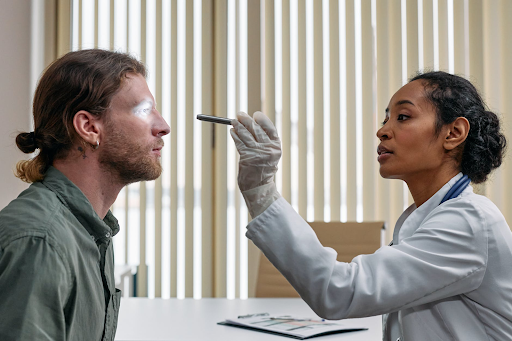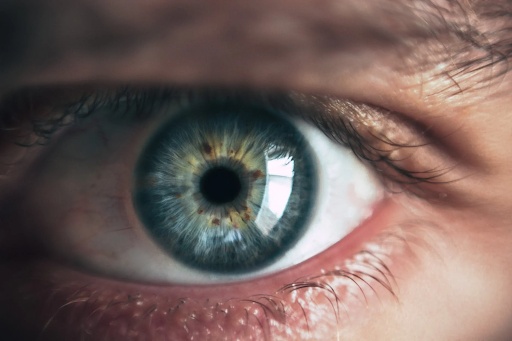These Helpful Tips Will Help You Maintain A Good Eyesight
You don’t realize how much you miss something until you’ve lost it. This is especially true when it comes to your health; as you become older, you realize how much you’ve neglected it and wish you could go back in time and take better care of it. People often overlook their eyesight until it is too late, therefore we will attempt to provide you with some tips so that you can maintain healthy eyesight as you age. Having dry or irritated eyes can be an obstacle in successful contact lens wear and can get in the way of daily activities. Check www.contactlenses.co.uk to know more about other options.
Minimize Blue Light Exposure
Today’s world revolves around technology, and our lives can be hardly imagined without it. This frequent use of technology can heavily influence our health and especially our eyesight. Devices such as mobile phones and computers emit blue light which can be linked to problems such as blurry vision and eye strain, which can influence your daily activities and make you feel fatigued. The best treatment for this problem is, of course, not to use these devices frequently, only when you have to. That means no video games, no videos, or to use them a couple of hours a day maximum. If you have to work online, the folks at blockbluelight.com.au suggest using glasses that can lower the impact of blue lights. Blue light should be avoided if possible, you should go out as much as you can and look at nature which soothes your eyes.
Wear Sunglasses
Even though you may think that sunglasses do not look cool or that they are not your style, you should still wear them. During the hot summers, the Sun can have a bad influence on your eyes and for those who are frequently outside, wearing sunglasses becomes almost a must. The most important characteristic of sunglasses is that they protect your eyes from ultraviolet light. Ultraviolet light or UV can have harmful effects on your retina, cornea, lens, and eyelid. Some suggest that people should wear sunglasses all year round, not just during the summer since UV light is present whether it is hot or not. It is also recommended that you wear them when traveling near a body of water, such as on a cruise because the light reflects off the water, and you will be exposed to more UV light than you would in a forest, where the trees do not reflect all of the light but absorb the majority of it.
Visit a Doctor
Visiting a specialist can be very important when it comes to keeping your eyesight. Even for those whose eyes are fine, it is recommended to pay an eye doctor a visit. How much you should visit depends on your age:
- Every 5 years for people aged 20 to 39.
- Every 2 to 4 years for people aged 40 to 54.
- Every 1 to 3 years for people aged 55 to 64.
- Every 1 to 2 years for those aged 65 and up.
These specialists will be able to monitor your eyesight, and they can point out diseases on time if you visit regularly. If you use glasses or contact lenses, have a family history of eye disease, or have a chronic condition that puts you at risk for eye disease, such as diabetes, you should have your eyes tested more frequently.
Many folks are unsure which type of eye doctor to visit for an examination. An ophthalmologist is a medical specialist who can prescribe glasses and contact lenses and is licensed to perform medicine and surgery. An optometrist is a licensed practitioner (not a doctor) who specializes in eye exams, vision testing, and the prescription of glasses and contact lenses. Some eye issues can be detected by an optometrist, and certain eye diseases can be treated with prescriptions prescribed by an optometrist. For a full eye checkup, either is a viable option. Make an appointment with an ophthalmologist if the problem is more complicated.
Quit Smoking
Many people are aware that smoking causes heart disease and lung cancer, but they are unaware that it can also cause eyesight loss. Smoking increases the risk of cataracts, visual nerve damage, and macular degeneration, among other medical concerns. When compared to non-smokers, smokers have a much higher chance of acquiring cataracts. In reality, studies suggest that persons who smoke have a twofold increased risk of developing cataracts, with the risk increasing as they smoke more. Don’t quit if you’ve tried to break the habit before and returned to it. You’re closer to succeeding the more times you try to quit.

We should all take adequate care of our eyes; there are various ways to do so, but the most essential thing to remember is that prevention is preferable to treatment. Hopefully, these pieces of advice have given you a better understanding of the hazards that exist and how to effectively defend your eyes from them.




